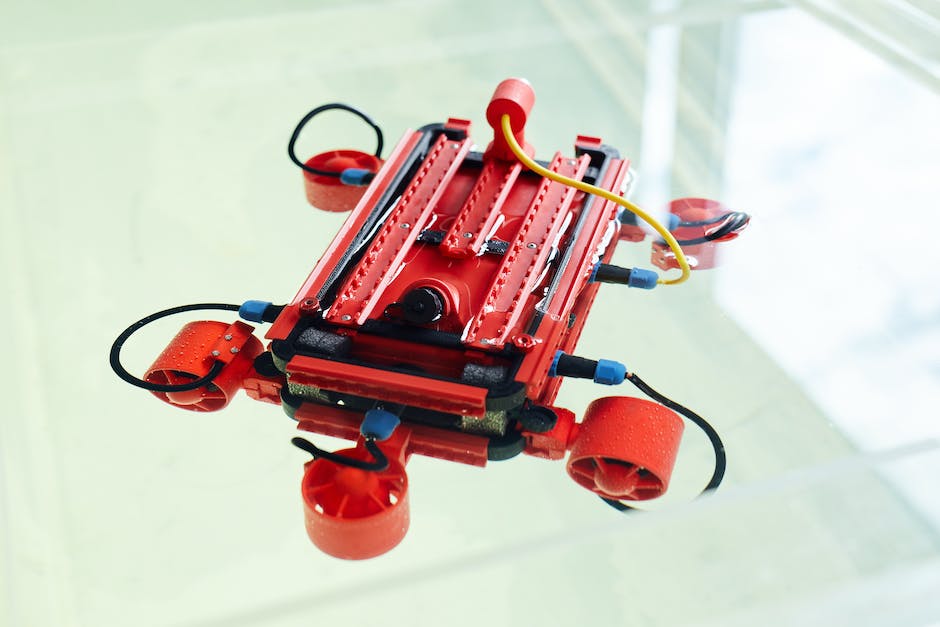In the heart of our advanced era, technology ceaselessly evolves and profoundly impacts our daily lives. With each pause of the clock’s hand, new tech inventions reshape the way we communicate, work, and live. As a result, we swiftly adapt to accommodate these changes, sometimes without even conscious awareness of how deeply they’ve been intertwined in our routines. From the way we wake up to the moment we fall asleep, these advancements have introduced novel methods of creating, sharing, and consuming information, ultimately revolutionizing our perception of reality. In this blog post, we delve into the realm of new technology to explore how it continues to shift the paradigms of our existence. By understanding these advancements, we can better navigate our modern life, maximizing the benefits that technology offers.
(The Rise of Smartphones) An examination of how smartphones have transformed communication, organization, and access to information.

In less than two decades, smartphones have dramatically transformed the way we communicate, organize, and access information.
These handheld devices have flattened the world, turning the seemingly complex into simple tasks. With a single touch or swipe, we can send messages, set reminders, or access the world’s database.
They’ve made communication increasingly fluid and instantaneous. Now, we can connect with anyone, anywhere – breaking down geographical barriers that once limited human interaction.
Organizing our life, too, has become a trivial task. Remembering that grocery list or scheduling a meeting is easier than ever before, thanks to smartphone reminder applications.
Smartphones have turned into our first stop for retrieving information. Watching news, reading books, listening to music – it’s all just few taps away.
The rise of smartphones is a beacon of transformative change, seamlessly integrating technology into our lives, shaping how we communicate, organize and consume information.
(Social Media and Online Networking) Discussion of how social platforms have reshaped interactions, business, and social awareness.

The dramatic rise of social media platforms has reshaped how we interact both personally and professionally.
Before, physical distance dictated the relationships we could create and sustain. Now we can connect professionally with someone halfway across the globe with a single click.
Business has been revolutionized.
Addition of platforms like LinkedIn has enabled networking to soar beyond geographical restrictions, providing a global pool of opportunities and talents. Similarly, businesses are using social media platforms like Facebook, Instagram, and Twitter for consumer engagement more than ever, making way for a more interactive form of customer service.
Moreover, these platforms have skyrocketed user-driven social awareness.
An activist in one part of the world can use social media to catalyze change on an international scale. This interconnected reality is redefining “community” in an increasingly globalized world.
Embracing the transition is crucial for businesses seeking success in today’s digital era.
(Online Shopping and Digital Economy) Analysis of how ecommerce and digital transactions have changed consumer behavior.

The advent of technology has quickly changed the dynamics of shopping, bringing about a shift from traditional brick-and-mortar stores to online platforms. This pivot to digital commerce globally has significantly impacted consumer behavior.
The convenience e-commerce offers cannot be overemphasized. From being able to compare prices at a glance to shop at their own pace and time, consumers have become more empowered and discerning.
Moreover, the use of digital transactions has brought about transparency and traceability. Consumers can track purchases and payments in real-time, ensuring their confidence in the shopping process. Simultaneously, digital transactions have helped businesses understand their customers better and provide personalized experiences.
This era of digital economy has transformed the shopping habits of consumers by providing a broader range of options and a more comfortable browsing experience. Indeed, the online shopping revolution has changed the retail industry forever.
(Healthcare Innovations) Insight into the role of technology in healthcare, including telemedicine, health trackers, and advanced treatments.
Technological developments revolutionize the day-to-day operations of our healthcare system. Telemedicine broadens the horizons of patient care, enabling doctors to connect with patients virtually. It serves as a lifeline for those residing in remote areas, or those physically unable to visit medical professionals.
Health trackers echo a paradigm shift in the patient’s active involvement in their health. These nifty devices track essential health statistics, aiding doctors in accurate diagnosis and treatment planning.
Furthermore, technology has birthed advanced treatments, like AI-enabled robotic surgeries and personalized drug therapies. These often offer higher success rates than traditional methods.
In conclusion, technological innovations in healthcare act as powerful tools, bridging the gaps, and transforming patient care for the better. Embracing these advancements aids in accomplishing a healthier, happier society.
(Remote Work and Online Education) Exploration of how tech advancements have enabled remote work and digital learning possibilities on a grand scale.
As our world continues to evolve, technology remains at the forefront of that change; largely reshaping traditional concepts of work and education.
Take the rise of remote work, for instance. Technology has made it possible for professionals to carry out their tasks from virtually anywhere, bridging geographical gaps and offering greater flexibility. Companies now have the ability to tap into talent without being restricted by location.
Simultaneously, online education has surged, transforming the traditional classroom. E-learning platforms now offer courses that were once only available within physical institutions, breaching borders and democratizing education. Students from different corners of the world can now learn at their own pace and convenience.
Indeed, the wave of tech advancements are moulding new era of remote work and digital learning on a grand scale.
(Emergence of Artificial Intelligence) Analysis of the impact of artificial intelligence on decision-making, automation, and job market.

The emergence of artificial intelligence (AI) presents a host of unprecedented innovations. It revolutionizes decision-making processes, shifting from subjective judgement to data-driven analyses. AI, in automation, optimizes repetitive tasks, increasing accuracy, and maximizing productivity.
Yet, the AI revolution also carries significant ramifications on the job market. As machines grow more competent, manual, and cognitive roles alike are becoming automated. This presents a dual-edged sword: on one hand, AI can help companies economize by reducing the workforce, but on the other, it poses a threat to job security for many.
Given the fast-paced advancement of AI, it’s critical to invest in upskilling and reskilling to remain competitive. The new age of AI necessitates a paradigm shift in how we think about work – enticing a synergy between man and machine, rather than competing grounds.
(Environmental Impact) Examination of both the positive and negative environmental implications of technological advancements.

Technological advancements have undeniably altered the face of our planet. They confer numerous environmental benefits, but equally, their drawbacks cannot be overlooked.
On a positive note, innovative technologies such as renewable energy solutions and electric vehicles have significantly curtailed greenhouse gas emissions. Likewise, waste management systems have been improved with advancements like smart recycling machines and composters.
However, the flip side paints a differing picture. The rapid pace of technological growth comes at steep environmental costs. Massive electronic waste, energy-hungry data centers, and pollution from manufacturing processes add to our environmental woes.
With every leap in technology, an accompanying environmental impact manifests. Therefore, the key lies in striking a balance, ensuring our technological progress doesn’t eclipse our planet’s sustainability.
It’s a weighty responsibility that we bear as the beneficiaries, and consequently, the stewards of technology.
(The Role of VR, AR, and MR) Discussion on how virtual, augmented, and mixed reality technologies are redefining entertainment, training, and exploration.

Undeniably, VR, AR, and MR technologies are causing a paradigm shift in the way we entertain, learn, and explore.
Virtual Reality (VR) transports users into immersive digital worlds, completely detaching them from their physical reality. It is revolutionizing fields from gaming to tourism, allowing experiences previously unfathomable.
Augmented Reality (AR), on the other hand, overlays digital information onto our physical environment. This tool is significantly enhancing training programs and educational content, making comprehension and retention more effective.
Mixed Reality (MR) merges the best of VR and AR, enabling real and digital objects to coexist and interact. It propels exploratory endeavors into new dimensions, creating unparalleled opportunities in design, architecture, and even healthcare.
By altering our reality, these technologies are transforming our experiences and shaping our future lives.






